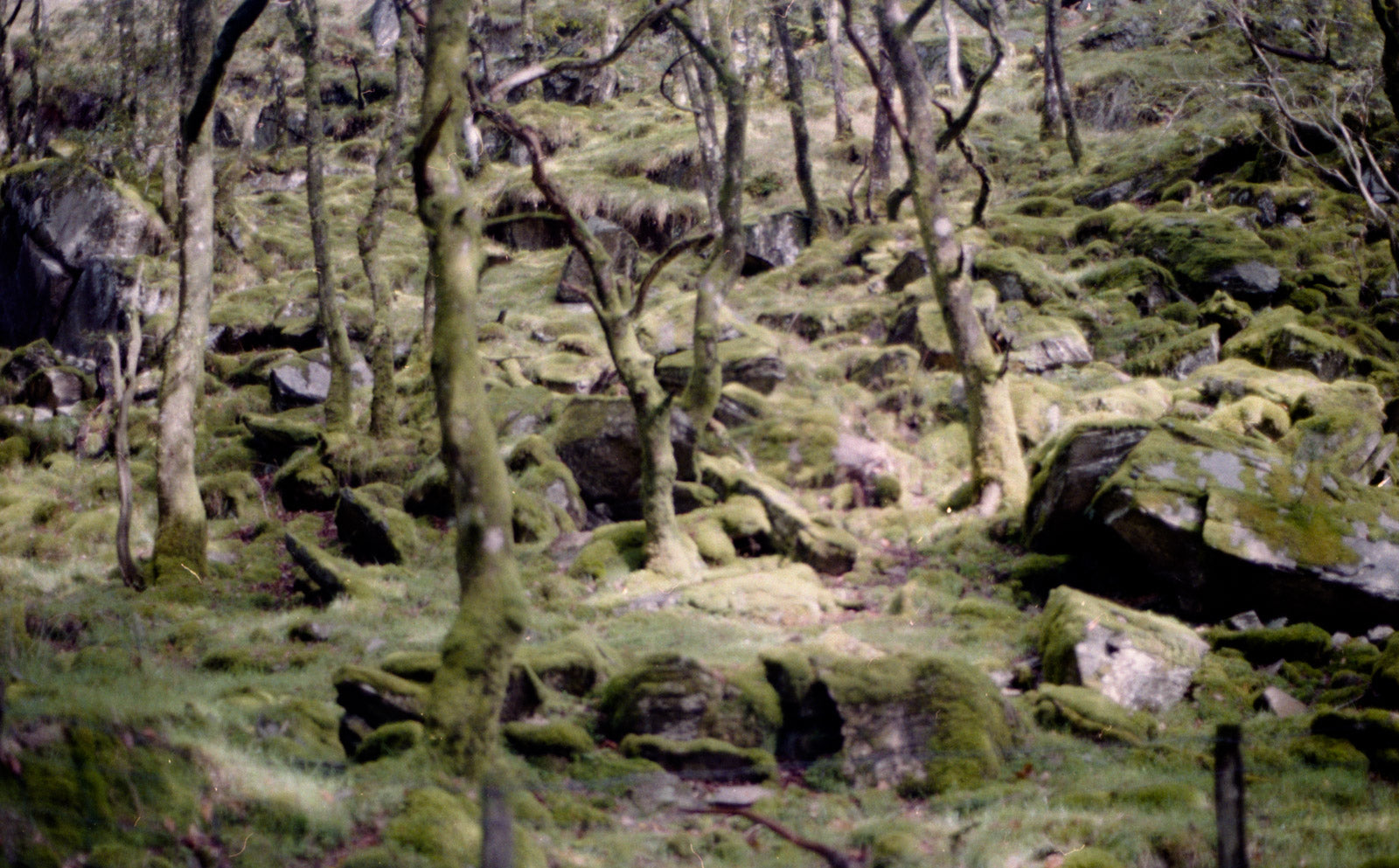














 I saw an interview with the late Eric Hobsbawn and even later Christopher Hitchens, strange combination for anyone familiar with the two but I happened to be watching it whilst in a meditative state of painting the flat. In understood silence Kaveh and I listened as these two spoke, we shared smiles, wound one another up and splashed with paint. We had take-away in the evening (Thai). It was perfect. I said that night as I fell asleep moments of quiet happiness like this are cherished. Nothing happened it was just living. I've wanted this simplicity for so long. In the interview Hobsbawn said that he had retired to Wales and even when in the North he was nostalgic for the South. I went to Wales later last month after we decorated; I met a woman who had written a diary entry that is seen in previous posts here. I found it in a bothy in North Wales. This time I met Catrin. I learned of her hometown and the socialist history of mining strikes, traitors (Bradwr) and the rifts between the families still in these small towns of those who returned to work and those who boycotted. In England we call them scabs or blacklegs. In those pictured above I have friends who understand all of this, hills, flat lands, inner still and frozen screams. I had been struggling lately, the climb to October a month of loss on so many levels. Friendships and jobs I couldn't keep - hadn't survived. But in the midst of this black ink I've found so much still. I cry, the loss still hurts but it's ok. My camera retires, I bought a new one. In Hobsbawn's obituary it says When the second world war broke out, Hobsbawn volunteered, as many communists did, for intelligence work. But his politics, which were never a secret, led to rejection. Instead he became an improbable sapper in 560 Field Company, which he later described as "a very working-class unit trying to build some patently inadequate defences against invasion on the coasts of East Anglia". This, too, was a formative experience for the often aloof young intellectual prodigy. "There was something sublime about them and about Britain at that time," he wrote. "That wartime experience converted me to the British working class. They were not very clever, except for the Scots and Welsh, but they were very, very good people." My constant sad horizons on the East Anglian coast calls me, as do the rolling hills of Wales in contrast. The cold in my blood and the very very good people. I love them so much.
I saw an interview with the late Eric Hobsbawn and even later Christopher Hitchens, strange combination for anyone familiar with the two but I happened to be watching it whilst in a meditative state of painting the flat. In understood silence Kaveh and I listened as these two spoke, we shared smiles, wound one another up and splashed with paint. We had take-away in the evening (Thai). It was perfect. I said that night as I fell asleep moments of quiet happiness like this are cherished. Nothing happened it was just living. I've wanted this simplicity for so long. In the interview Hobsbawn said that he had retired to Wales and even when in the North he was nostalgic for the South. I went to Wales later last month after we decorated; I met a woman who had written a diary entry that is seen in previous posts here. I found it in a bothy in North Wales. This time I met Catrin. I learned of her hometown and the socialist history of mining strikes, traitors (Bradwr) and the rifts between the families still in these small towns of those who returned to work and those who boycotted. In England we call them scabs or blacklegs. In those pictured above I have friends who understand all of this, hills, flat lands, inner still and frozen screams. I had been struggling lately, the climb to October a month of loss on so many levels. Friendships and jobs I couldn't keep - hadn't survived. But in the midst of this black ink I've found so much still. I cry, the loss still hurts but it's ok. My camera retires, I bought a new one. In Hobsbawn's obituary it says When the second world war broke out, Hobsbawn volunteered, as many communists did, for intelligence work. But his politics, which were never a secret, led to rejection. Instead he became an improbable sapper in 560 Field Company, which he later described as "a very working-class unit trying to build some patently inadequate defences against invasion on the coasts of East Anglia". This, too, was a formative experience for the often aloof young intellectual prodigy. "There was something sublime about them and about Britain at that time," he wrote. "That wartime experience converted me to the British working class. They were not very clever, except for the Scots and Welsh, but they were very, very good people." My constant sad horizons on the East Anglian coast calls me, as do the rolling hills of Wales in contrast. The cold in my blood and the very very good people. I love them so much.


Leave a comment: